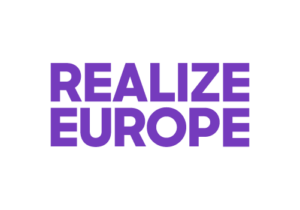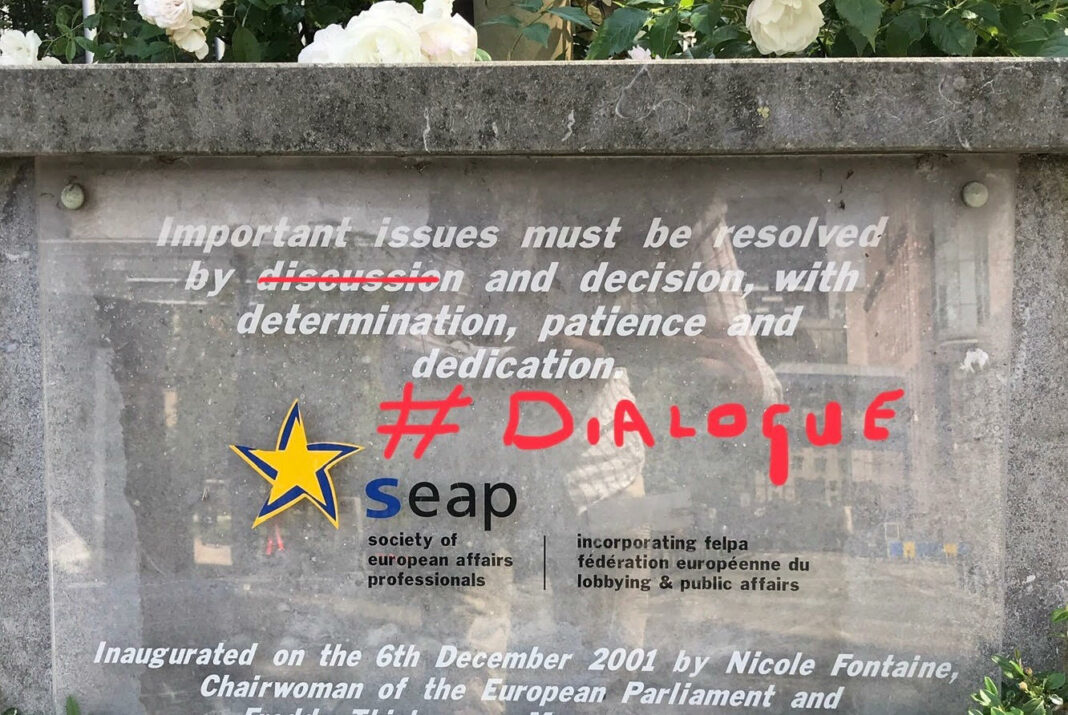Europe was raped by Zeus. Disguised as a bull he kidnapped her, threw her on the coastline of the mediterranean sea where she became the first queen of Creta. Europe is a place where you go on foot, where you complot in coffeehouses and where the streets have no numbers but names of philosophers and other memorable personalities.
Europe is a fable, a story, a continent, an area, a history, a culture, a political union, a conflict zone, and above all a narrative.
In the 1930s, Steiner notes, the Germans wanted to be German, the Italians to be Italian, etc. – only the Jews aspired to be ‘European’. It took the Holocaust for the nations of Europe to realize the virtues of this shared identity.
“You have to remember there is so much to remember” (George Steiner)
He says that Europe’s past is both a burden and a gift, and it is the role of the critic to help us navigate the landscape.
Many Europeans still see their national differences as a root for the lack of unity, but for an American, an Asian or an African visitor, the European identity is very ostentative. As Europe lurches back towards nationalism, we would do well to remember our legacy and the innumerably precious treasures of our shared civilization.
Europe has been the cradle of many dominant and contradicting practices in economy, lifestyle, sciences, politics, culture, and philosophy. Yet worldwide, we get stuck with the materialization of our actual and past concepts.
“The deadlock of our routing cannot be solved by more institutional corrections or more intelligent financial, economic engineering” (Daniel Innerarity)
Europe needs a narrative that can be understood and accepted by its citizens. We can only leave behind the old narrative if we are able to change concepts that are deeply ingrained in us and our societies. We need to do a deep reflection on our philosophical assumptions from modernity, followed by the surge of new assumptions.
“The debate worldwide should focus on energizing a new human life path, a new aspiration a total re-invention of ourselves” (Yuval Noah Harari)
Together we will construct a narrative that is converging these, attractive, motivating and challenging dreams and visions into a coherent future scenario that can reset the societal debate from cynicism, anti-popularism and Brussels-blame into the focus on a good massive dialogue.
Dare to overcome the pro or contra EU debates, we need a dialogue about the narrative that incorporates the past, and creates a new horizon in which we can aspire human values, democracy, and political participation and that can give us a clear entry point for the technological explosion.
Socratic Design | Value and Experience-Based Design
Socratic Design is a method that – instead of focus on problems- create new realities on the base of our top experiences and our successes. When we try to solve problems we often continue the problematic situations.
Many think tanks and countless conferences have not delivered.
The reasons are threefold:
- our neuronal system favors the addiction of thoughts; hence we keep repeating old concepts
- we are unable to listen although we assume we are listening
- we are unaware of the philosophical assumptions that are at work in our minds and hearts
These aspects avoid collaborative thinking. Socratic Design is a practical philosophical method that transforms any group of individuals in strong collective attention. It uses the resources of philosophical assumptions to analyze our actual way of “thoughts” and design new systems of thinking and values.
Socratic Design triggers the “art of listening,” even proponents will engage in a mutual process of strong empathy.
After becoming aware of our blocking assumptions, we begin the process of re-evaluating old assumptions and creating new ones. We design new assumptions using the method of appreciative inquiry and Socratic interviewing, all aiming at harvesting our best experiences and our practical wisdom.
With the Socratic Design scenario method, we can deliver a new narrative for Europe, that is rooted in daily life experiences and at the same time, communicates fundamental values and purposes.
Three Design Phases
I.
We collect the top experiences, dreams, and, visions of significant personalities and thought leaders in a dynamic creative process of dialogue.
II.
We agree on five values that communicate the fundamentals of the (European) project.
We deliver sketches of challenging “Perfect Day” scenarios, related to “good life”. The stories contain strong traditions, good innovations, new habits, and new assumptions on humanity and society.
III.
We present the value-based narratives, in a way that others can participate in dialogue and design process. The communication about the “GOOD” life we aspire, can be rooted in old philosophies or present practice or science fictions.
With a new Narrative presented vividly, we trigger new activities in business, education, and governance. In the scenarios, we can develop new sorts of economies, learning environments, democracies, private happiness, and human interactions.












